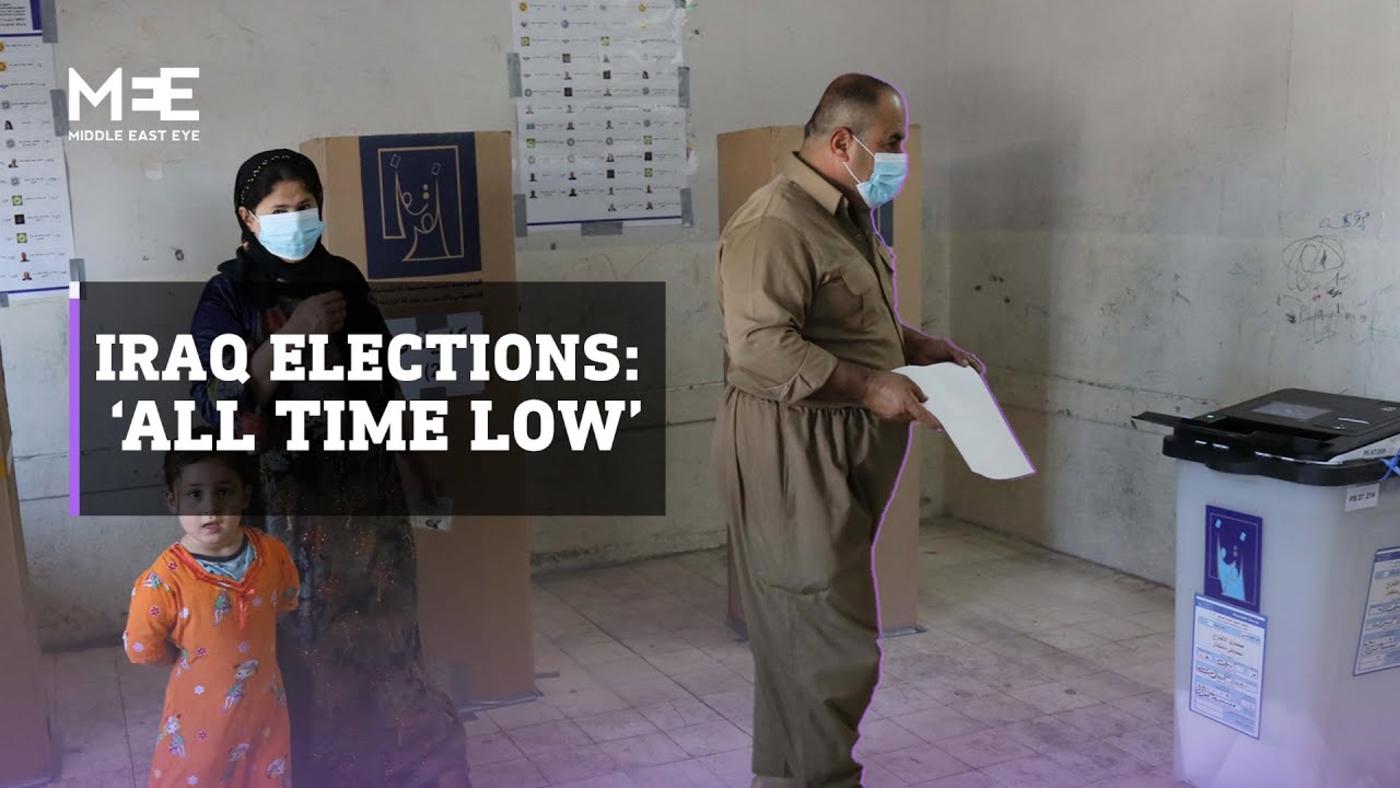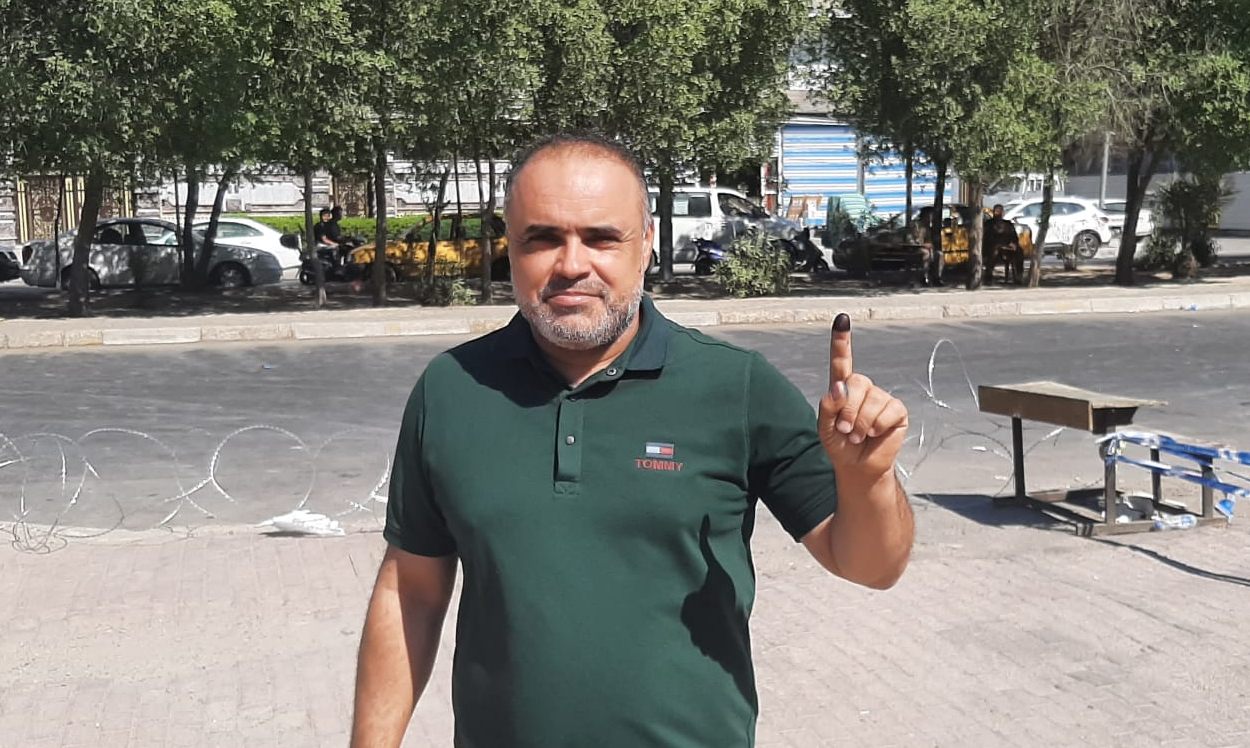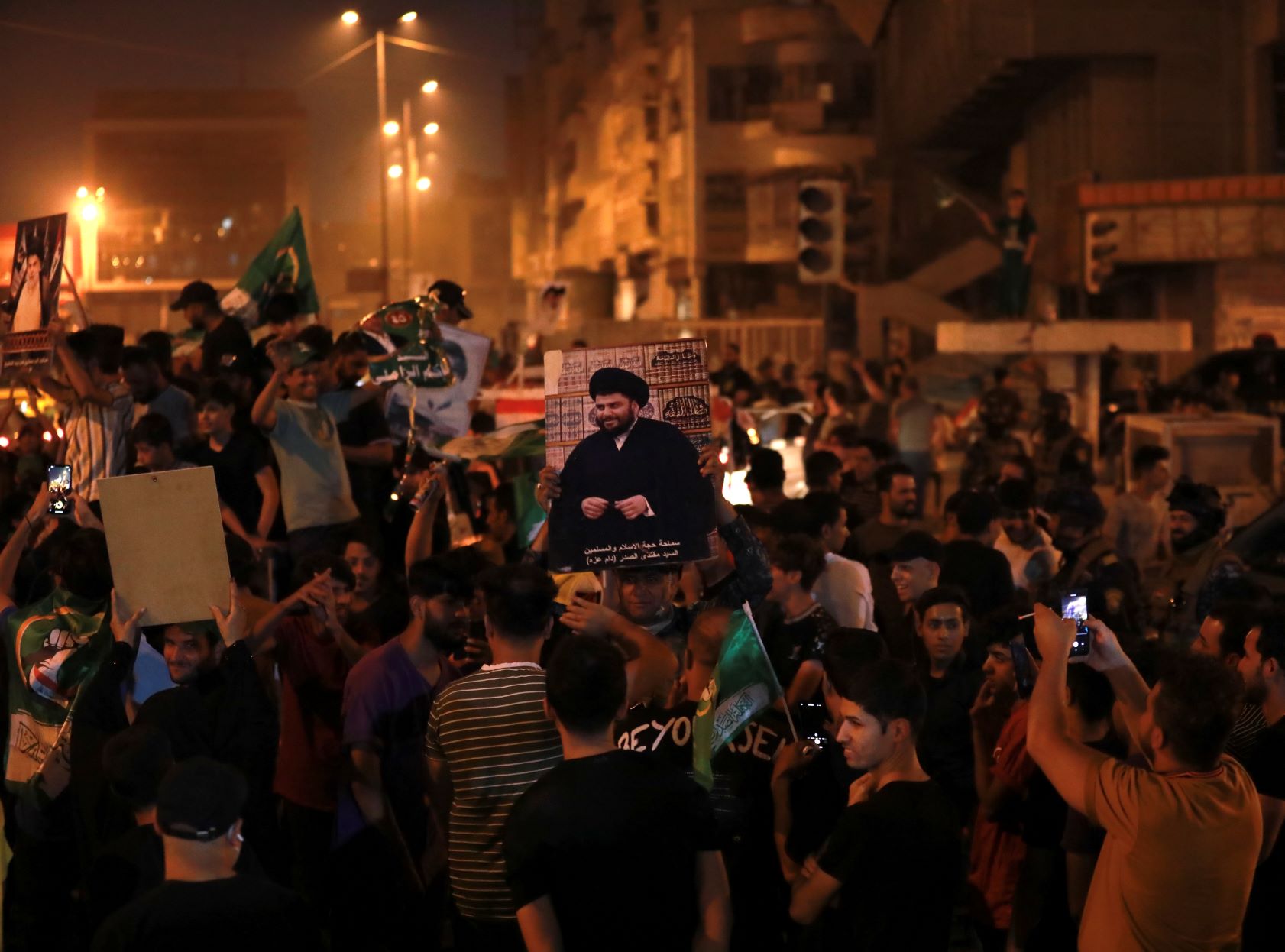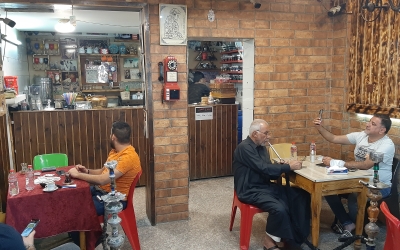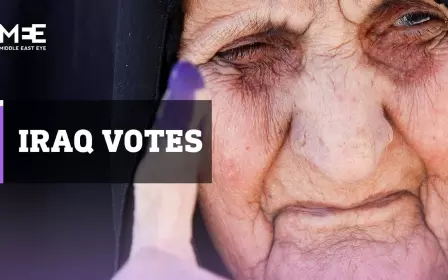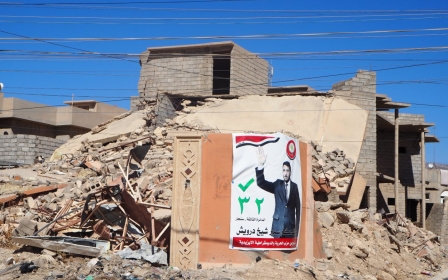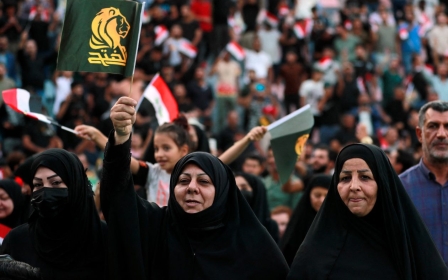Iraq elections 2021: Low turnout reported as polls close in parliamentary vote
Polls have closed in Iraq's parliamentary elections with the country's elections commission suggesting a record low turnout, as the government prepares for violence in the wake of the announcement of results.
Fireworks were launched in the capital Baghdad following the close of polls at 6pm, but the attempt to create a jubilant mood belies the fact that polling stations across Iraq saw low attendance, with the young in particular seemingly boycotting en masse.
The Iraqi High Electoral Commission (IHEC) announced at a press conference that they would be announcing the turnout in the early evening.
“The results will be announced rapidly - within the next 24 hours. We will announce the voter turnout figures soon. Complaints will be examined and considered by the IHEC within 48 hours," said IHEC chairman Jalil Adnan
Government officials told Middle East Eye that they were prepared to impose local curfews if the preliminary results lead to anger from parties who expected to do better in the polls.
New MEE newsletter: Jerusalem Dispatch
Sign up to get the latest insights and analysis on Israel-Palestine, alongside Turkey Unpacked and other MEE newsletters
Despite reports of technical problems, election officials ruled out extending voting past the 6pm deadline.
One senior official said that preliminary results could in theory be announced half an hour after polls close, but that "in practice, this is not possible" - adding that the Iraqi government is bound to announce the results within 24 hours.
Across the country, the situation remained largely calm on polling day.
Despite some fears of potential unrest in the flashpoint locations of Nasiriyah, Kirkuk and Baghdad's Sadr City, by the evening there had been no reported disturbances.
New rules brought in
The election was the first to take place under new rules brought in by Prime Minister Mustafa al-Kadhimi to try and appease anti-government protesters who have, since October 2019, been calling for reform or even overthrow of the entire political class.
The new electoral system saw the number of electoral districts increased to 83, rather than the 18 in previous elections. Districts will now vote for individuals rather than parties, though candidates still have party backing unless they stand as independents.
Another rule change saw 25 percent of all seats reserved for female candidates.
“I’m here today to vote, and I have just voted for myself,” Sawsan Jadou, one of four candidates for the United Iraq Turkmen Front running in Kirkuk, told MEE.
Jadou was one of more than 900 women running in the parliamentary elections.
Seven women - three party candidates and four independents - were competing for the one woman's seat in Kirkuk.
“Kirkuk is like a micro version of Iraq, with all its diverse ethnicities and its rich resources of the ‘black gold’ that is oil,” Jadou said.
“Whoever are elected MPs for Kirkuk have a duty to work for the city and its residents, not for themselves and their own pockets.”
The new rules change have, however, failed to convince large swathes of the anti-government movement.
By midday on Sunday, the IHEC reported that turnout in eight of the country's governorates had failed to reach more than 25 percent.
"We took to the streets to bring down the regime, not participate in it"
- Natiq al-Khafaji, Iraqi activist
In Nasiriyah, one of the heartlands of the anti-government protest movement, activists called for a boycott of the elections, warning that voting would only lend "legitimacy" to a system they saw as intrinsically corrupt.
"We took to the streets (in 2019) to bring down the regime, not participate in it," Natiq al-Khafaji, one of the most prominent activists boycotting the elections told MEE.
"This (political) regime is murderous, criminal and corrupt, and we won't give it legitimacy by participating in the elections," Khafaji added.
"We called for a national salvation government and laws to regulate the work of parties, disband militias, and prevent political blocs that have armed wings from participating in the elections - but they bypassed our grievances and did what they wanted."
Local media reported voting machines malfunctioning in Kirkuk and Dhi Qar governates, leaving some voters unable to cast their ballots.
MEE was not able to independently verify issues reported in Kirkuk city, the Islamic State group's former stronghold of Hawija, and the Turkmen town of Altun Kopri.
Election commission authorities have said they were working to fix the voting machines.
One election official in Nasiriyah told MEE that some of the voting machines were unable to identify people's fingerprints. Observers said to MEE that local officials were told to let voters use the fingerprint of any other finger except the thumb if machines were unable to identify it.
But despite the rule change, observers noticed that the problem still persisted, especially with elderly voters.
The chairman of Iraq's election commission said the electoral devices malfunctions were "limited" and caused by "human errors".
Sadrists expecting victory
Analysts predicted that Muqtada al-Sadr, the influential Shia cleric who commands a following of millions across Iraq, would emerge as the overall winner in the elections.
Supporters of the cleric took to Baghdad's Tahrir Square following the close of the polls for a celebratory rally.
On Sunday afternoon Sadr released a voice recording on social media imploring his followers to go to the polling booths.
In Sadr City, the sprawling, impoverished region of Baghdad that houses the majority of the city's population and which is named after Sadr's popular father, many voters said they would be casting their vote for the cleric's political movement.
Khaled, 44, said that he believed that Sadr was still the man to solve Iraq's myriad problems.
"I think - no, I am certain they are on the right path and will change things for the better," he said, displaying his ink-stained finger as proof of his vote.
"I'm sure they will [win] because they have a lot of popularity."
Minority quotas
As is often the case in a country as riven by community as Iraq, much attention was paid to the votes coming to the country’s ethnic and religious community.
In Kirkuk, many vehicles from the Turkmen community were going to and from the polling stations, draped with the Turkmen flag.
Hooting horns, waving flags and showing the victory sign, many seem to be anticipating winning more than one parliamentary seat.
However, one Turkmen onlooker shook his head and said sadly: “They are wrong."
Engineer Abdullah Abdul Qader al-Rasheed in traditional Turkmen clothing outside a Kirkuk polling station expressed his sadness about what looks to be a low voter turnout.
“It is in our hands, in our power to bring about change but people have to participate, and come out and vote,” he said.
Kirkuk governorate has 13 parliamentary seats in total, four of those for Kirkuk city, with the single quota seat always reserved for a Christian.
In previous parliamentary elections, Kirkuk’s Christian community fielded a handful of candidates but, this year, there are an incredible 38 Christian candidates standing for the one quota seat.
The Christian candidates - both party and independent hopefuls - make up more than one-third of the candidate list for Kirkuk city, all competing for just one seat
These are the first elections in Iraq’s ethnically diverse and fiercely contested Kirkuk where there have been independent candidates, potentially changing the political landscape.
The governorate has 13 parliamentary seats up for grabs, including the single quota seat which is always taken by a Christian candidate.
The remaining 12 seats, one of which is reserved for a female candidate, are divided amongst three areas.
In Kirkuk City, there are four seats, for which candidates of any ethnicity can stand and which, in keeping with local demographics, are expected to be split between Turkmens, Kurds and Arabs.
Five of the 12 seats will be for Kurds, living in outlying villages with predominantly Kurdish populations. The remaining three seats are allocated for Arab candidates in Hawija, a former IS stronghold, and which was one of the last to be liberated by the Iraqi armed forces.
Kirkuk’s ethnicities have grabbed the chance to put forward independent candidates but the profusion of these, especially in Kirkuk City, could confuse voters.
For example, for the one Christian "quota" seat, there are more than 30 candidates standing, taking up around one-third of the total candidate list.
However, Kirkuk’s Christians form a modest percentage of Kirkuk’s population.
“I’ve never seen anything like this,” said one IHEC staff member, counting the Christian candidates listed with incredulity.
“They usually have just a few candidates. How will the Christians here know who to choose?”
Middle East Eye delivers independent and unrivalled coverage and analysis of the Middle East, North Africa and beyond. To learn more about republishing this content and the associated fees, please fill out this form. More about MEE can be found here.


